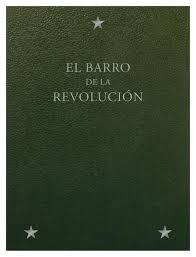
Download El Barro de la Revolucion - 2019
Storyline
What are the social conditions of political change? This question brought Paloma Polo closer to the revolutionary underground of the Philippines. The work, coexistence and filming investigation that she carried out in a guerrilla front were the culmination of three years of research and reflection within the country's political struggle. Destruction, exploitation, repression and inequality mark the history and nature of the Philippine nation, mostly inhabited by poor peasants and indigenous communities. The struggle, that continues to be waged in the country today, adheres to the communist tradition and deepen its roots in repeated liberation struggles that for centuries have resisted the colonial yoke. Fifty years of struggle at a distance from the State without defeating it, have nevertheless generated optimal conditions to pose the problem of socio-political organization, the main issue that any victorious revolution must face, once political power has been taken. Everyday life in a guerrilla unit, as Polo films and experiences it, displays a choral portrait that takes on narrative density by exploring the survival and advance of this revolution in the transformation of the individuals who join it, and their relationships with the environment or society. The guerrillas that Polo portrays are industrious and active builders of a different world, conceived from cooperative work. Their task is primarily pedagogical, but it is also practiced assisting communities as doctors, teachers, researchers, artists, mediators, administrators, farmers ... Thus, large but remote Philippine communities have become a kind of laboratory for life and a repository of wisdom on sociopolitical change. Crossing the singular, the common and the universal, Paloma Polo's film work becomes an exploration and reflection on this knowledge, in counterpoint to our globalized society.